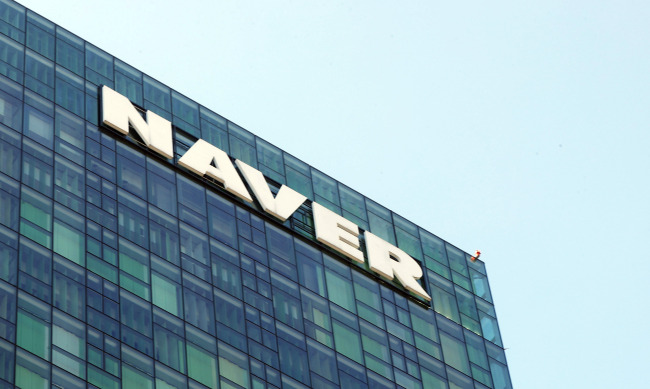The Boardroom
Naver regretful of FTC’s designation of Lee Hae-jin as ‘owner’
[THE INVESTOR] Naver expressed regrets on Sept. 4 over the South Korean antitrust watchdog’s decision to add the company as well as its founder Lee Hae-jin to a new corporate watch list, citing plans to review legal actions to challenge the FTC’s interpretation.
South Korea’s Fair Trade Commission on Sept. 3 designated Korea’s biggest portal website operator Naver as a “large corporation” with founder Lee as its effective owner, a move which requires the Korean internet giant and Lee to follow new antitrust regulations and duties.
 |
The FTC on Sunday designated five firms -- Naver, Nexon, Dongwon Group, Samra Midas Group and Hoban Construction -- as “large corporations” with assets of more than 5 trillion won ($4.42 billion) and with an “owner” who exercises sizeable influence over the company.
The five companies are now subject to limits on financial and inter-affiliate transactions as well as mandatory disclosures devised as part of antitrust laws aimed at enhancing corporate transparency among Korea’s conglomerates, most of which are family-owned.
As an “owner,” Lee is now personally obliged to disclose his own corporate actions as well as the business activities of his relatives. This includes Lee’s own investment company Jieum as well as restaurant brand Hwaeum and YoungPoong Tour, which are owned by Lee’s relatives.
While Naver accepts its “large corporation” status and the corresponding corporate duties, it rejects the FTC’s interpretation of founder Lee as the company’s “owner,” a concept it claims is relevant only to Korea’s family-controlled conglomerates rather than private companies such as Naver.
“That Korea is unilaterally applying the same laws designed to regulate family-owned chaebol to private companies (which have grown independently) signifies that the country’s corporate regulations are outdated,” Naver said in a statement.
According to Naver, Lee possesses a low stake of about 4 percent in the company and is not involved in any form of circular shareholding involving family members. It also operates on a transparent management system based on an elected CEO and board.
“To advance, Korea must formally recognize more ‘ownerless’ private companies and foster a corporate environment where such firms can grow in number,” it said.
A Naver spokesperson said that the company plans to start reviewing ways to legally challenge the FTC’s regulatory framework over the “owner” designation, including administrative litigation.
In doing so, Naver will continue to carry on its fight to obtain “ownerless” company designation on grounds that Lee, currently the firm’s Global Investment Officer, possesses a small stake and limited influence within the company.
At the moment, the National Pension Service is Naver’s biggest shareholder with a 10.5 percent stake. Foreign investors make up the second-largest shareholder, while Lee is the third-largest shareholder with a 4.31 percent stake.
Lee has formally left the top management, resigning from the firm’s board chairmanship last year to focus on the company’s global investment agenda.
Naver had hoped that the FTC would interpret the company’s owner as the company itself, rather than the founder, allowing Naver to become a “large corporation” without an effective owner.
However, the FTC viewed Lee as the firm’s chief. Despite his seemingly low stake, Lee is the only one among Naver’s large stakeholders who is engaged in top-level decision-making activities, it said.
Though the NPS and foreign investors are Naver’s majority stakeholders, they have disclosed that they do not exert managerial control over the company, the FTC said. Over 50 percent of Naver’s shares are also owned by individuals with a less than 1 percent stake.
This situation makes Lee’s 4.31 percent stake relatively more significant and powerful, according to the regulator. Adding to his perceived influence, Lee is the only large shareholder at Naver who is a member of the external board member recommendation committee, it added.
Meanwhile, Rep. Kim Kyung-jin of the People’s Party, who is a part of the National Assembly’s Science, ICT, Broadcasting and Communications Committee on Monday called on Naver to “fully accept the FTC’s designation.”
Kim said Naver should not view the FTC’s move as unjust, but continue to make concerted efforts to differentiate itself from the chaebol and their cronyism.
By Sohn Ji-young/The Korea Herald (jys@heraldcorp.com)








